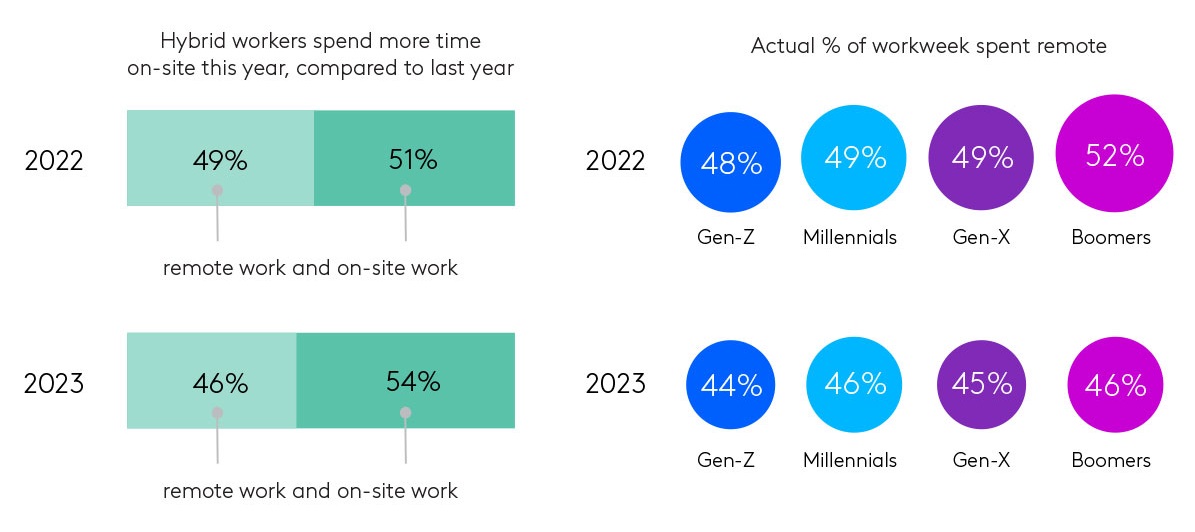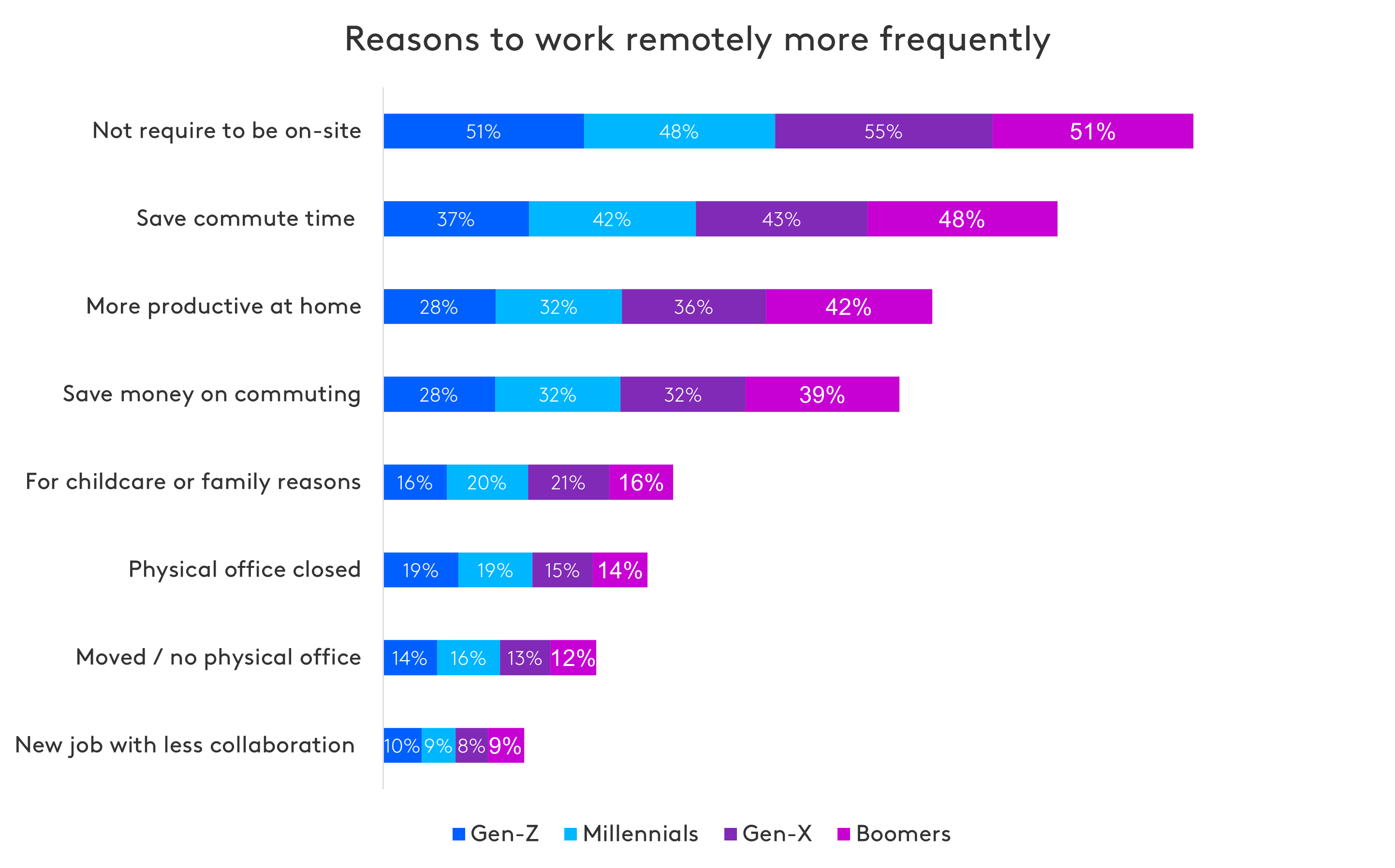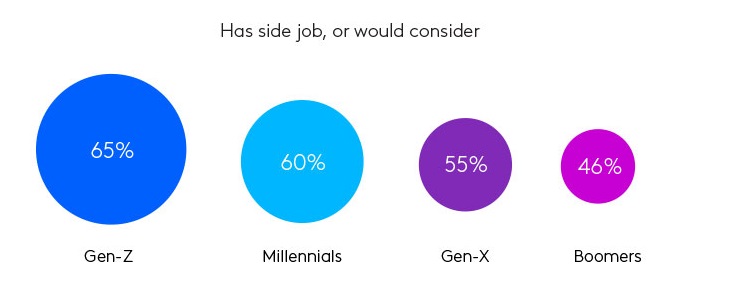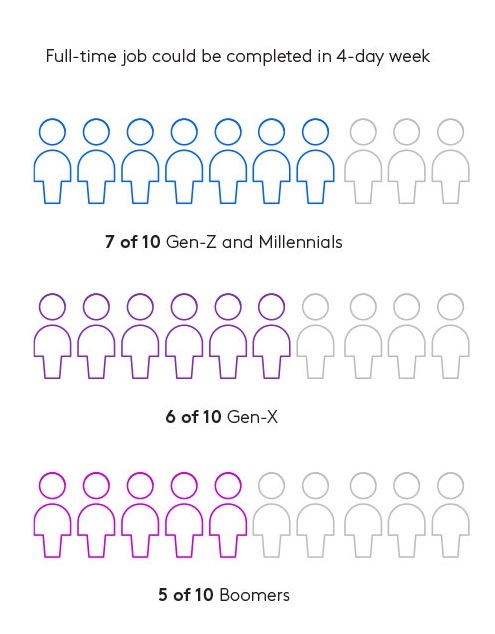As global workers grapple with the evolution of the modern workplace post-pandemic, Gen-Z is in the beginning stages of entering the workforce more forcefully. As this generation of workers penetrates the labour force, Boomers are acclimating to new working environments near the culmination of their professional careers.
Kantar recently conducted new research into the sentiments of global employees, and how they have changed over the past year. In this research, generational differences were observed across the ways employees think, feel and behave when it comes to new ways of working.
Return to Office Impacts All Generations
Pandemic-fueled quarantines forced many corporations to close local branches or office sites completely as workers embraced remote lifestyles. Now, more companies are implementing mandated or optional return-to-office plans for staff. As more companies are requiring employees to be on-site either fully or hybrid, employees across all generations are spending less time working remotely compared to last year.

However, Boomers favour more time spent remote compared to younger generations, and their motivational drivers vary as well.
Gen-Z and Millennial Focus on Professional Growth
Generational differences were hugely apparent in the reasonings workers are spending less time working remotely, and their desires toward employees in support of the new flexible workforce. Generally, younger generations, who are at more pivotal points in their professional careers, are driven by employee growth and advancement opportunities, while older generations value productivity-based features.
42% of Boomers report a preference toward working remotely because they are “more productive at home,” while only 28% of Gen-Z agree. Conversely, 14% of Gen-Z report they work remote less often now because they want access to office perks like snacks or lunches, compared to only 8% of Boomers. Gen-Z and Millennials also head to the office because they want more face-time with senior leadership to support “visibility and faster advancement opportunities,” which is less of a driver for older workers. Gen-Z also reports doing more at work because they are working toward a promotion, where Boomers are just “personally motivated” to work hard.

Gen-Z Supplement Lifestyles with Side Hustles
Gen-Z and Millennials are also twice as likely to consider engaging in a job search, compared to their older counterparts, and to hold a side job to bring in extra income. On average, 40% of Gen-Z holds two or more jobs, while Boomers (21%) and Gen-X (30%) are less likely to have more than one.

4-Day Workweek Favoured by Younger Generations
Generational differences abound in seemingly all areas of workplace sentiments, and extend also to interest in new ways of working. Of proposed move to 4-day workweeks, only 5 of 10 Boomers agree their job could be completed in fewer than 5 days a week compared to 7 of 10 Gen-Z or Millennial workers.

Older workers may be more inclined to think about their professional commitments more traditionally, or have more time-intensive management roles and responsibilities that require more hours, compared to employees who are fresh out of school in their first or second jobs.
Get more answers
For more findings from this study, access the complete Community Report: Connecting with the Workforce. Find additional generational and country-specific answers on sentiments toward new ways of working, economic pressures and more.
About this study
This research was conducted online among 10,055 full or part-time workers (whose job function could be performed remotely at least part-time) across ten global markets: US, UK, France, Germany, India, Singapore, Spain, South Africa, Mainland China and Brazil between December 13, 2022 - January 6, 2023. All interviews were conducted as online self-completion and collected based on controlled quotas evenly distributed between generations and gender by country.
Respondents were sourced from the Kantar Profiles Audience Network.
